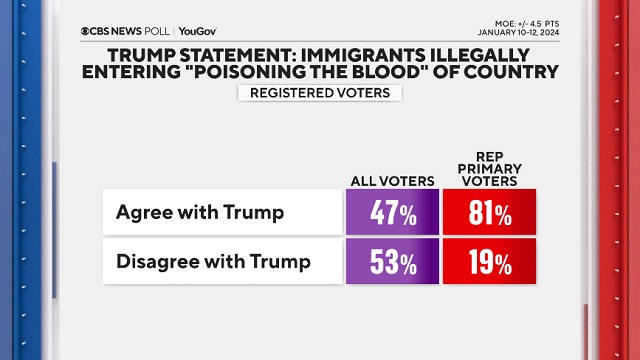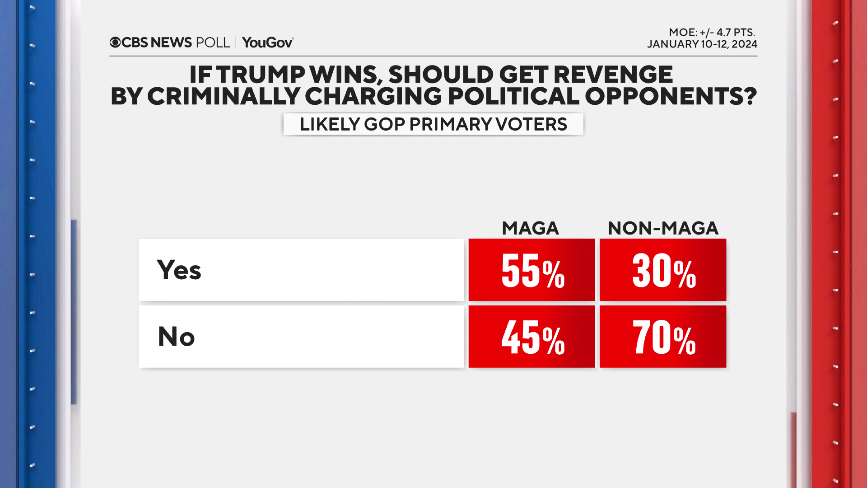Apollonian
Guest Columnist
Book Review: Lukacs' "The Hitler of History"
(Apollonian, 7 Oct 21)
(Apollonian, 7 Oct 21)
John Lukacs' book, "The Hitler of History," Alfred A. Knopf Inc., NY, 1997; 279 pp text, xv, Bibliography, Index; is miserable history, but good enough writing otherwise--enough that it is notable and worthy of review and evaluation. For Lukacs, his work published in 1997, credits the utterly fraudulent "holohoax," long since exposed and crushed out of existence (see Codoh.com), has no idea of the horrific and deliberate mass-murder, by starvation, etc., of German P.O.Ws and civilians during and after the war (even up to 1950), and utterly fails to place things historical within any sort of serious context. For one thing, Lukacs fails to grasp Spengler and the CYCLIC theory of history. So as simple basic history, Lukacs fails, but still he struggles to place Hitler himself within a biographic context, and here though he still fails, yet he does a better job, at least for many details, and these, and Lukacs' attempts at analysis are more worthy of notice.
For Lukacs' method is a general biographic analysis of Hitler entailing then the works of other authors for background and what they say, and of course, Lukacs' unfortunately credits the holohoax stupidity of these authors, many of them, though perhaps not all, but including such windbag as Ian Kershaw, for example, so the work is fatally flawed and undercut. Lukacs' virtue however, is regarding the other aspects of Hitler and his personality, and though he fails overall, his failures are yet instructive, hence worthwhile to observe.
For Lukacs understands very well that dear old unc' Adolf (Hitler) is such a great hero and otherwise interesting figure for so many, then and nowadays too, who had the temerity to opposing those satanic monsters, the Jews, that any halfway genuine biography and history of Hitler the man is sure to make lots of money and sales, so Lukacs wisely wants to analyze this interest and the treatment given to the subject of Hitler and then some of the historical circumstances besides.
Specifically then Lukacs analyzes the authors of previous works on Hitler and their primary topics of exposition; it includes such as David Irving, another clever writer who senses the great opportunity for sympathizing w. Hitler and the Germans and taking notice of the Jew and communist circumstances, for which notice everyone else fail and fears so cravenly to doing.
Thus Lukacs' text starts and ends (chapters 1 and 9) w. the subject of "Historiographic problems." And of course, for one thing, Lukacs takes note of the tremendous popular interest in Hitler--which is actually fatal for the Jews who know they are bound to be analyzed and thus un-covered for many. Thus we see so much of the effort Jews and their cohorts and satanist sympathizers take for distraction and diversion of the stupid goyim upon whom the Satanists feed so parasitically, breeding and cultivating these great masses of morons--at the same time as keeping them fighting one another, so urgently keeping attention fm Jews and satanists themselves, Jews, the leaders of Satanists, Satanism, and their corrupt operations (like the present "covid" hoax)--which attention Hitler was able to focus and direct, at least for a time and to a significant extent, though it wasn't quite enough for his fullest success--a great historical lesson in itself, which Lukacs and so many others utterly fail to see and grasp, as Lukacs is a moralist who pretends to emphasize moralism and the clash of non-existent "good vs. evil"--such a great (and false) issue for so many of the over-populated goons, suckers, and morons. Yet Hitler was able to so much capture the imagination of so many--he just wasn't able to fully exploit what he so brilliantly had begun--which terrifies the Jews even in the present day.
For note in this most serious cultural and philosophic task of fullest analysis, Hitler was not completely or fully equipped, Hitler mostly a politician, thus too superficial, pragmatic, and eclectic, Hitler himself mired within the false moralism of altruism and self-sacrifice of the individual, Hitler a genuine socialist, though he wanted also to emphasize additionally the principle of personal and individual expression, thus "national" socialism which opposed the inter-national socialism of Bolsheviks and Marxists--which then is why Roosevelt (FDR), the USA, and Churchill of the UK chose naturally to ally w. Stalin and the soviets, the Satanists and Jews behind them all, funding their political campaigns and the mass-media cultivation of the masses of suckers and goons--it still operates and works successfully to this very day, Jews and Satanists exultantly lording it over everyone at the top--which Lukacs along w. the other fools so stupidly fail and refuse to see.
The irony is that Satanism is actually quite easy to spot and analyze, simply extreme subjectivism (whence reality is held to be creation of mind/consciousness, making the subject to be God, the creator--Satanism) by which the objective, determinist, and Christian influence is removed and ejected. Jews dominate the other Satanists and goyim as Jews are most collectivistically and thereby effectively organized--even though the goyim (at least so far) so much out-number Jews, a mere detail of irony which the goyim fools too easily overlook.
Thus we observe the satanic (again, as always, led by Jews, foremost Satanists) financial operations and influence must necessarily extend to politics, journalism, and "education," not to mention entertainment and judicial affairs of the nation(s). Hence note that Satanism must eventually affect and dominate the very religious foundation of the culture--as can easily be verified in our own day and age in the satanization of the "Christian" establishment, "Judeo-Christians" (JCs) and "Christian-Zionists" thus persuaded to supporting the terror-state of Israel no less.
Lukacs' second chapter covers Hitler's "crystallization" of his personality, including anti-Semitism, formed in Vienna and Austria, but then ready to be most fully expressed when he moved to Munich, then especially for motivation when Germany lost the war and Hitler resolved to "go into politics."
Next, in the third chapter, one of Lukacs' best, "Reactionary and/or Revolutionary," Lukacs analyzes Hitler's program and psychology along w. the German historical situation at the time, concluding that Hitler was brilliant enough to appeal to the reactionaries, or at least very many of them, but that Hitler was truly and genuinely a revolutionary himself, the perfect counter-revolutionary (at least for Germany) against the Bolsheviks, so successful, which the Satanists and Jews resent so much, spending so much time reviling the German people for so willingly following unc' Adolf, the Satanists and Jews, so resentful, left to merely besmirching Hitler personally, etc.
In chapter four, "State; People; Race; Nation," Lukacs surely does his best work for analysis and exposition. Thus Lukacs distinguishes Hitler's concepts of race and nationalism, for example, and demonstrates the great and tremendous effects Hitler was able to accomplish in his mastery, rhetoric, and integration of all these concepts for the Germans, including conservatives, the working class, and everyone--the only ones left out were, of course, Jews and their close sympathizers.
Thus Hitler succeeded so overwhelmingly for psychology and politics in Germany, though he was less successful elsewhere in the West, unfortunately, Hitler only failing for most thoroughgoing philosophy, no one else adequately taking up the task and work to be done, even to the present day--which is why Hitler remains so much of mystery, interest, and study for people throughout the world.
Next, in chapter 5 Lukacs strives to continue his analysis in "Statesman and Strategist," but doesn't succeed nearly as well as he did for chapters 3 and 4 as he has most difficulty w. the necessay larger historical context, the dominance of Satanism and Jews. In chapter 6, "The Jews: Tragedy and Mystery," Lukacs fails completely for analysis. For Lukacs is another of the fools who wants to pretend Jews are just normal people like anyone else, etc. No, u fool, Jews are satanic Satanists by virtue of their very religion and precepts (extreme subjectivism, including "midrash" and "Oral Law Trad.") which Lukacs just idiotically overlooks and ignores. See for reference, RevisionistReview.blogspot.com, Talmudical.blogspot.com, Come-and-hear.com, and TruthTellers.org.
In chapter 7, Lukacs, as historian, wants to take-up the place of Hitler within German history and how it reflects to him (Lukacs) in present-day circumstances, how present-day Germans think and talk about Hitler, etc. Lukacs goes on in his chapter 8 to discuss and analyze how and what the German and a few other historians say about Hitler, but typically, for such a poor historian and moralist as Lukacs is, accepting the "holohoax" stupidity, he's just a sad failure. At least we get some information about other historians for what they say, but it's still pretty insipid commentary overall fm Lukacs who so dutifully toes the propaganda line the Jews and Satanists have laid down.
Finally in the last, 9th chapter, Lukacs re-takes up the "historical problem" in summary and conclusion for Hitler, noting the horrific catastrophe for Germany in WWII, totally overlooking and ignoring the veritable satanic nature of Jews and cohorts and the cruel revenge the monsters took--which satanic cruelty continued and continues to this day as we see Western governments forcing poison vaccinations upon the poor, stupid, over-populated goons, weaklings, and morons, making such large profits for "Big Pharma," run by the Jews, these corp.s immune fm lawsuits.
Thus the value of Lukacs work is that stupid, ignorant, and incompetent as he is for history, yet he seriously strives in his way to be honest and succeeds in spots and places for observations, like in his chapters 3 and 4, and his errors are thus yet instructive. Unc' Adolf dealt a crushing blow to the Jews and implicitly to Satanists and the larger satanic movement (like "globalism," the United Nations, and "world gov.," etc.), and it's why people are still so impressed and struck by his successes such as they were and still are. For the Jews have been found out (again), and not for the first time. Hitler told major truths about the Jews which is why Jews and Satanists repeat themselves so idiotically so often about how and why unc' Adolf was such a terrible guy. The people KNOW these filthy Jews and Satanists just "protesteth too much."








